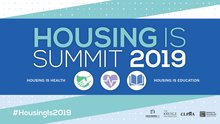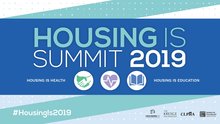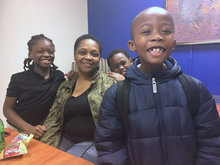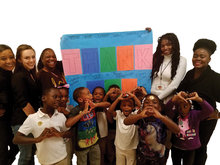0
Report
Community:
Jun 29, 2022
Looking largely at the 2020-2021 school year, the report is chock-full of information about how schools apply research-based strategies in a variety of different contexts – from very different school systems across multiple states – to make research translate into positive experiences and outcomes for students and their teachers in three critical areas:
• Instructional work, where math or English-language-arts teams, including instructional coaches, special-education teachers, and English learner/multilingual teachers, work to improve the quality of instruction within classrooms.
• Early Warning and Response strategies, where grade-level or cross-functional teams work to create more supportive school environments, where young people are connected to adults, each other, and the school community.
• Well-Matched Postsecondary initiatives, where school-based teams of counselors, service providers, district and school leaders, teachers, and other staff band together to implement evidence-based strategies and processes that support postsecondary application, enrollment, and persistence.
At its heart, improvement is about learning. Each of these networks study their own work, and consistently and strategically make adaptations to increase their effectiveness as the organizational hub supporting schools. And they demonstrate how lessons need not fade away, but when codified, systematized, and shared, they can deepen our collective capacity to accelerate the field’s learning and growth.
Authored by:
Topics: Advocacy, Attendance, Child welfare, CLPHA, Community development, Education, Grade-level proficiency, Housing, Literacy, Low-income, Partnerships, Place-based, Supportive housing, Sustainability, Youth
 Shared by Karina George
Shared by Karina George
Karina George posted a
on Jun 29, 2022
Looking largely at the 2020-2021 school year, the report is chock-full of information about how schools apply research-based strategies in a variety of different contexts – from very different school systems across multiple states – to make research translate into positive experiences and outcomes f
0
Video
Community:
Jun 17, 2022
The Low Income Investment Fund (LIIF) will moderate a unique cross-sector panel of housing and early care and education (ECE) experts on strategies and best practices for co-locating ECE facilities within affordable housing developments. Discussion of specific financing techniques and site design considerations from existing co-located facilities will provide attendees lessons on policy and programmatic changes needed to incentivize co-location. Panelists include innovators in affordable housing development, government and public sectors, early care and education operations, and community development finance.
Authored by:
Topics: Advocacy, Broadband, Child welfare, CLPHA, Family engagement, Food insecurity, Health, Housing, Legislation & Policy, Low-income, Nutrition, School-readiness, Supportive housing, Sustainability
 Shared by Karina George
Shared by Karina George
Karina George posted a
on Jun 17, 2022
The Low Income Investment Fund (LIIF) will moderate a unique cross-sector panel of housing and early care and education (ECE) experts on strategies and best practices for co-locating ECE facilities within affordable housing developments.
0
Report
Community: Youth
Dec 1, 2020
420,000.
Based on the new report, "Lost in the Masked Shuffle & Virtual Void: Children and Youth Experiencing Homelessness Amidst the Pandemic" from SchoolHouse Connection and Poverty Solutions at the University of Michigan, that’s how many fewer children and youth experiencing homelessness have been identified and enrolled by schools so far this school year.
According to our data and insights - gathered from educators and homeless liaisons across 49 states - the number of children, youth, and families experiencing homelessness has likely increased due to the economic crisis. Yet, because of COVID-19 challenges in identifying children and youth experiencing homelessness, hundreds of thousands may not be getting the education and support they need - from internet access, to housing, to food, to child care.
What’s more, only 18% of respondents indicated that federal coronavirus relief education funding provided by the CARES Act is being used to meet the needs of students experiencing homelessness.
To break generational cycles of homelessness, we must take swift action to support the increasing number of children, youth, and families in need. Check out our report to learn more and take action. We have included recommendations for Congressional leaders, state and local educational agencies, homeless, housing, food, and other relief agencies, and philanthropic organizations.
Authored by: Poverty Solutions at THE UNIVERSITY OF MICHIGAN & SCHOOLHOUSE CONNECTION
Topics: Attendance, Child welfare, Early childhood, Education, Funding, Health, Homelessness, Low-income, Stability, Youth
 Shared by Housing Is
Shared by Housing Is
Housing Is posted a
on Dec 1, 2020
Poverty Solutions at THE UNIVERSITY OF MICHIGAN & SCHOOLHOUSE CONNECTION
0
Report
Community:
Nov 7, 2019
How Housing Programs Can Support the Educational Needs of Children Living in Publicly Supported Homes
Authored by: Public and Affordable Housing Research Corporation
Topics: Attendance, Broadband, Child welfare, Early childhood, Health, Housing, Literacy, Low-income, Out-of-school time, Partnerships, Place-based, Research, School-readiness
 Shared by Kelly McElwain
Shared by Kelly McElwain
Kelly McElwain posted a
on Nov 7, 2019
Public and Affordable Housing Research Corporation
How Housing Programs Can Support the Educational Needs of Children Living in Publicly Supported Homes
0
Publication
Community:
Jun 11, 2019
The Trump Administration is publicly weighing plans to gradually lower the official poverty line by applying a smaller cost-of-living adjustment each year. Doing so would be unjustified for several reasons.
Authored by: Arloc Sherman and Paul Van de Water for The Center on Budget and Policy Priorities
Topics: Child welfare, Food insecurity, Legislation & Policy, Low-income, Nutrition, Stability
 Shared by Housing Is
Shared by Housing Is
Housing Is posted a
on Jun 11, 2019
Arloc Sherman and Paul Van de Water for The Center on Budget and Policy Priorities
The Trump Administration is publicly weighing plans to gradually lower the official poverty line by applying a smaller cost-of-living adjustment each year. Doing so would be unjustified for several reasons.
0
News Article
Community:
Jun 5, 2019
In the United States, more than 2.7 million grandparents report that they’re primarily responsible for their grandchildren under 18. The problem is many are struggling with food insecurity because of federal rules and regulations.
Authored by: Marie C. Gualtieri for Next Avenue
Topics: Child welfare, Food insecurity, Legislation & Policy, Low-income, Nutrition
 Shared by Housing Is
Shared by Housing Is
Housing Is posted a
on Jun 11, 2019
Marie C. Gualtieri for Next Avenue
In the United States, more than 2.7 million grandparents report that they’re primarily responsible for their grandchildren under 18. The problem is many are struggling with food insecurity because of federal rules and regulations.
0
Report
Community:
May 1, 2019
Community eligibility allows high-poverty schools and school districts to offer free meals to all students, and it eliminates the need for household school meal applications. A key piece of the Healthy, Hunger-Free Kids Act of 2010, community eligibility was phased in a few states at a time before it was made available to schools nationwide in the 2014–2015 school year.
Authored by: Food Research & Action Center (FRAC)
Topics: Child welfare, Education, Food insecurity, Legislation & Policy, Low-income, Nutrition, Out-of-school time, Research
 Shared by Housing Is
Shared by Housing Is
Housing Is posted a
on Jun 3, 2019
Food Research & Action Center (FRAC)
Community eligibility allows high-poverty schools and school districts to offer free meals to all students, and it eliminates the need for household school meal applications.
0
News Article
Community:
Mar 18, 2019
It’s a prescription guaranteed to develop healthy brains, refine motor skills and prepare kids for school, doctors say. But few parents expect a physician to hand their children a book at their first wellness checkup at Nationwide Children’s Hospital in Columbus.
Authored by: Alissa Widman Neese for The Columbus Dispatch
Topics: Child welfare, Early childhood, Education, Health, Literacy, Low-income, Partnerships
 Shared by Housing Is
Shared by Housing Is
Housing Is posted a
on May 30, 2019
Alissa Widman Neese for The Columbus Dispatch
It’s a prescription guaranteed to develop healthy brains, refine motor skills and prepare kids for school, doctors say. But few parents expect a physician to hand their children a book at their first wellness checkup at Nationwide Children’s Hospital in Columbus.
0
Report
Community:
May 1, 2019
Child poverty is an urgent and preventable crisis. Solutions to child poverty already exist if we just expand and invest in them. Benefits like nutrition assistance, housing vouchers and tax credits helped lift nearly 7 million children out of poverty in 2017, but millions of children were left behind due to inadequate funding, eligibility restrictions and low wages. We can and must fix these problems to help more children escape poverty now.
Authored by: Children's Defense Fund
Topics: Child welfare, Dual-generation, Early childhood, Food insecurity, Funding, Housing, Legislation & Policy, Low-income, Research, Workforce development
 Shared by Housing Is
Shared by Housing Is
Housing Is posted a
on May 28, 2019
Child poverty is an urgent and preventable crisis. Solutions to child poverty already exist if we just expand and invest in them.
0
Video
Community:
May 24, 2019
A landmark National Academies of Sciences report commissioned by Congress concludes that childhood poverty in the U.S. could be cut in half within a decade with appropriate action. The report culls through the existing evidence-base to identify the most impactful existing policies including the Earned Income Tax Credit (EITC) and housing assistance. This panel will also discuss promising new policies that if enacted could help reduce poverty such as the child allowance.
Authored by: Housing Is, CLPHA
Topics: Child welfare, CLPHA, Housing, Legislation & Policy, Low-income, Partnerships, Research
 Shared by Housing Is
Shared by Housing Is
Housing Is posted a
on May 24, 2019
A landmark National Academies of Sciences report commissioned by Congress concludes that childhood poverty in the U.S. could be cut in half within a decade with appropriate action.
0
Video
Community:
May 24, 2019
Congresswoman Barbara Lee, long-serving progressive leader and member of the Budget and Appropriations Committee, and Co-Chair of the Democratic Policy and Steering Committee, will give remarks on congressional efforts to reduce child poverty.
Authored by: Housing Is, CLPHA
Topics: Child welfare, CLPHA, Legislation & Policy, Low-income, Partnerships
 Shared by Housing Is
Shared by Housing Is
Housing Is posted a
on May 24, 2019
Congresswoman Barbara Lee, long-serving progressive leader and member of the Budget and Appropriations Committee, and Co-Chair of the Democratic Policy and Steering Committee, will give remarks on congressional efforts to reduce child poverty.
0
Publication
Community:
May 14, 2019
Low- and moderate-income families in Puerto Rico would get a significant income boost from the Working Families Tax Relief Act, which would substantially expand the Child Tax Credit (CTC) in Puerto Rico as well as nationally and also help the Commonwealth expand its own, recently implemented Earned Income Tax Credit (EITC). The bill, which Senators Sherrod Brown, Michael Bennet, Richard Durbin, and Ron Wyden introduced recently, would reduce poverty and increase economic security for millions of working families in the United States, including Puerto Rico.
Authored by: Javier Balmaceda for The Center on Budget and Policy Priorities
Topics: Child welfare, Legislation & Policy, Low-income, U.S. Territories
 Shared by Housing Is
Shared by Housing Is
Housing Is posted a
on May 15, 2019
Javier Balmaceda for The Center on Budget and Policy Priorities
Low- and moderate-income families in Puerto Rico would get a significant income boost from the Working Families Tax Relief Act, which would substantially expand the Child Tax Credit (CTC) in Puerto Rico as well as nationally and also help the Commonwealth expand its own, recently implemented Earned
0
Publication
Community:
Apr 25, 2019
Research shows that clinical care is only one factor that impacts population health and that a collection of other factors – including the natural and built environment where people live, education economic stability, food, and community and social context – grouped under the term social determinants of health (SDOH), have significantly more influence on care utilization, outcomes, and population health. Together, these factors account for 60% of preventable mortality.
Authored by: Daniel Young for The Network for Public Health Law
Topics: Child welfare, Early childhood, Health, Low-income, Medicaid / Medicare
 Shared by Housing Is
Shared by Housing Is
Housing Is posted a
on May 2, 2019
Daniel Young for The Network for Public Health Law
Research shows that clinical care is only one factor that impacts population health and that a collection of other factors – including the natural and built environment where people live, education economic stability, food, and community and social context – grouped under the term social determinant
0
Policy Brief
Community:
Congress has an important opportunity in 2019 to improve the health of millions of our nation’s children by passing a strong reauthorization that protects and strengthens the child nutrition programs. These successful, cost-effective federal nutrition programs play a critical role in helping children in low-income families achieve access to child care, educational, and enrichment activities while improving overall nutrition, health, development, and academic achievement.
Authored by: Feeding America and Food Research & Action Center
Topics: Child welfare, Early childhood, Food insecurity, Funding, Legislation & Policy, Low-income, Nutrition
 Shared by Housing Is
Shared by Housing Is
Housing Is posted a
on May 1, 2019
Feeding America and Food Research & Action Center
Congress has an important opportunity in 2019 to improve the health of millions of our nation’s children by passing a strong reauthorization that protects and strengthens the child nutrition programs.
0
News Article
Community:
Apr 4, 2019
The nonprofit LIFT Orlando and AdventHealth have started construction on a “first of its kind” early learning center in the long-neglected West Lakes neighborhood south of Camping World Stadium, with an opening expected by August. The center will provide basic education as well as health and wellness programs, an on-site doctor or advanced nurse practitioner, mental health counseling and other services beyond the classroom. It can enroll up to 220 children from age 6 weeks to 5 years, with half of the openings reserved for kids from the West Lakes area, who will be accepted regardless of their families’ ability to pay.
Authored by: Kate Santich for Orland Sentinel
Topics: Child welfare, Early childhood, Education, Health, Low-income, Partnerships, Place-based
 Shared by Housing Is
Shared by Housing Is
Housing Is posted a
on Apr 4, 2019
Kate Santich for Orland Sentinel
The nonprofit LIFT Orlando and AdventHealth have started construction on a “first of its kind” early learning center in the long-neglected West Lakes neighborhood south of Camping World Stadium, with an opening expected by August.
0
Publication
Community:
The Keeping Families Together model turned the usual paradigm for prioritizing affordable housing on its head. Rather than targeting the most “stable” families, Keeping Families Together sought out families with the most complicated cases—those at greatest risk. Thanks to this approach, families once on the brink of crisis now have a permanent place to call home, as well as the services and support they need to stay together.
Authored by: CSH
Topics: Child welfare, Family engagement, Homelessness, Housing, Low-income, Partnerships, Research, Supportive housing
 Shared by Housing Is
Shared by Housing Is
Housing Is posted a
on Apr 4, 2019
The Keeping Families Together model turned the usual paradigm for prioritizing affordable housing on its head. Rather than targeting the most “stable” families, Keeping Families Together sought out families with the most complicated cases—those at greatest risk.
0
Publication
Community:
Mar 21, 2019
School districts, teachers, and students across the country are beginning to prepare for spring break even though snow still blankets the ground in many states. While many students welcome the break from classes, for many others spring break also means a break from the nutritious school meals and afterschool suppers and snacks they rely on to remain engaged, active, and healthy.
Authored by: Clarissa Hayes for Food Research & Action Center (FRAC)
Topics: Child welfare, Education, Food insecurity, Low-income, Nutrition
 Shared by Housing Is
Shared by Housing Is
Housing Is posted a
on Apr 2, 2019
Clarissa Hayes for Food Research & Action Center (FRAC)
School districts, teachers, and students across the country are beginning to prepare for spring break even though snow still blankets the ground in many states.
0
News Article
Community:
Mar 21, 2019
Reauthorization of the Healthy Hunger-Free Kids Act of 2010 has been stalled since 2015. Even though the Senate Agriculture Committee and the House Education and the Workforce Committee reported their respective bills, the Improving Child Nutrition Integrity and Access Act of 2016 (S. 3136) and the Improving Child Nutrition and Education Act of 2016 (H.R. 5003), neither was acted upon by the full House and Senate. Instead, these programs were extended as part of the FY2016 omnibus appropriations law.
Authored by: Marshall Matz and Roger Szemraj for AgriPulse
Topics: Child welfare, Food insecurity, Funding, Legislation & Policy, Low-income, Nutrition
 Shared by Mica O'Brien
Shared by Mica O'Brien
Mica O'Brien posted a
on Mar 26, 2019
Marshall Matz and Roger Szemraj for AgriPulse
Reauthorization of the Healthy Hunger-Free Kids Act of 2010 has been stalled since 2015. Even though the Senate Agriculture Committee and the House Education and the Workforce Committee reported their respective bills, the Improving Child Nutrition Integrity and Access Act of 2016 (S.
0
Publication
Community:
Mar 1, 2019
Released bi-monthly, each issue of the ZERO TO THREE Journal focuses on a critical topic within the early childhood development field. Journal articles are carefully composed to present current knowledge, latest research, and practical advice to help early childhood professionals do their best work in support of infants and toddlers.
Authored by: Zero To Three
Topics: Child welfare, Dual-generation, Early childhood, Homelessness, Housing, Low-income, Research, Safety
 Shared by Mica O'Brien
Shared by Mica O'Brien
Mica O'Brien posted a
on Mar 26, 2019
Released bi-monthly, each issue of the ZERO TO THREE Journal focuses on a critical topic within the early childhood development field.
0
News Article
Community:
Mar 18, 2019
The Department of Education reports more than 29,000 kids in North Carolina were considered homeless in the 2016-2017 school year. About three-quarters of those are living with other families because it’s too expensive to live on their own. According to Shantiqua Neely, it’s not necessarily because people don’t have jobs. She’s the executive director at A Child’s Place, the organization helps homeless CMS students and families. She said it’s because rent is too expensive.
Authored by: Alex Olgin for WFAE 90.7
Topics: Child welfare, Education, Homelessness, Housing, Legislation & Policy, Low-income
 Shared by Mica O'Brien
Shared by Mica O'Brien
Mica O'Brien posted a
on Mar 26, 2019
The Department of Education reports more than 29,000 kids in North Carolina were considered homeless in the 2016-2017 school year. About three-quarters of those are living with other families because it’s too expensive to live on their own.
0
Research
Community:
Jan 1, 2019
Homelessness during pregnancy poses significant health risks for mothers and infants. As health care providers increase their emphasis on social determinants of health, it is important to understand how unstable housing contributes to complications during pregnancy. We linked data about emergency shelter enrollees with Massachusetts Medicaid claims for the period January 1, 2008–June 30, 2015 to compare health care use and pregnancy complications for 9,124 women who used emergency shelter with those for 8,757 similar women who did not. Rates of mental illness and substance use disorders were significantly higher among homeless women. Adjusted odds of having nine pregnancy complications were also significantly higher for homeless women and remained substantially unchanged after we adjusted for behavioral health disorders.
Authored by: Robin Clark, Linda Weinreb, Julie Flahive, and Robert Seifert for Health Affairs
Topics: Child welfare, Depression, Early childhood, Homelessness, Housing, Low-income, Mental health, Pre-natal, Research, Substance abuse
 Shared by Housing Is
Shared by Housing Is
Housing Is posted a
on Mar 26, 2019
Robin Clark, Linda Weinreb, Julie Flahive, and Robert Seifert for Health Affairs
Homelessness during pregnancy poses significant health risks for mothers and infants. As health care providers increase their emphasis on social determinants of health, it is important to understand how unstable housing contributes to complications during pregnancy.
0
Research
Community:
Dec 31, 2018
The Supplemental Security Income (SSI) program is an important, means-tested source of income for the families of children with disabilities. Although some research has shown that SSI improves outcomes for these families, policymakers have been concerned about the program’s growth and the poor outcomes that many former child SSI recipients experience in adulthood. In this brief, we summarize research funded by SSA’s Disability Resource Consortium (DRC) on the program’s recent growth and the factors related to receipt of SSI by children. This research reveals dramatic variation in the rate of child SSI receipt at the state and county level, which is partly due to geographic differences in both the population and the economic circumstances that influence program eligibility.
Authored by: Mathematica Policy Research
Topics: Child welfare, Disabilities, Health, Low-income, Research
 Shared by Housing Is
Shared by Housing Is
Housing Is posted a
on Mar 18, 2019
Mathematica Policy Research
The Supplemental Security Income (SSI) program is an important, means-tested source of income for the families of children with disabilities.
0
Research
Community:
Feb 28, 2019
Findings from a national descriptive study of Early Head Start-Child Care Partnerships reveal new information about how partnerships expand access to high quality, affordable care for infants and toddlers. The study describes characteristics of these partnerships, including how they were formed and operated, as well as strategies for implementing partnerships in both center-based child care and family child care homes. It also describes the wide range of services that partnerships offer to children and families who receive care through Early Head Start-Child Care Partnership grant funds. Lessons learned from this study can inform ongoing and future activities of partnerships in early care and education programs as well as training and technical assistance efforts.
Authored by: Del Grosso, Thomas, Makowsky, Levere, Fung, and Paulsell for Department of Health and Human Services
Topics: Child welfare, Early childhood, Low-income, Research
 Shared by Housing Is
Shared by Housing Is
Housing Is posted a
on Mar 15, 2019
Del Grosso, Thomas, Makowsky, Levere, Fung, and Paulsell for Department of Health and Human Services
Findings from a national descriptive study of Early Head Start-Child Care Partnerships reveal new information about how partnerships expand access to high quality, affordable care for infants and toddlers.
0
News Article
Community:
Mar 7, 2019
Democrats this week announced new legislation that would slash child poverty by paying low-income parents the kind of monthly allowance that is standard in other developed countries. But the lawmakers who introduced the bill, called the American Family Act, didn’t use the terms “child benefit” or “child allowance” at their Capitol Hill press conference Wednesday. Instead, they all called it a tax credit or a tax cut.
Authored by: Arthur Delaney for HuffPost
Topics: Child welfare, Dual-generation, Early childhood, Funding, Legislation & Policy, Low-income, Research
 Shared by Housing Is
Shared by Housing Is
Housing Is posted a
on Mar 12, 2019
Arthur Delaney for HuffPost
Democrats this week announced new legislation that would slash child poverty by paying low-income parents the kind of monthly allowance that is standard in other developed countries.
0
News Article
Community:
Oct 1, 2018
When children get sick from poor living conditions inside their rundown apartments, they miss school. And when 95 percent of students of one school live in the same apartment complex—where evictions are routine and black mold is rampant—classrooms are often left empty.
Authored by: Jamie Hwang for the American Bar Association Journal
Topics: Attendance, Child welfare, Education, Health, Housing, Low-income, Partnerships, Place-based, Youth
 Shared by Housing Is
Shared by Housing Is
Housing Is posted a
on Mar 11, 2019
Jamie Hwang for the American Bar Association Journal
When children get sick from poor living conditions inside their rundown apartments, they miss school. And when 95 percent of students of one school live in the same apartment complex—where evictions are routine and black mold is rampant—classrooms are often left empty.
 Shared by Karina George
on Jun 29, 2022
Shared by Karina George
on Jun 29, 2022
 Shared by Karina George
on Jun 17, 2022
Shared by Karina George
on Jun 17, 2022
 Shared by Housing Is
on Dec 1, 2020
Shared by Housing Is
on Dec 1, 2020
 Shared by Kelly McElwain
on Nov 7, 2019
Shared by Kelly McElwain
on Nov 7, 2019
 Shared by Housing Is
on Jun 11, 2019
Shared by Housing Is
on Jun 11, 2019
 Shared by Housing Is
on Jun 11, 2019
Shared by Housing Is
on Jun 11, 2019
 Shared by Housing Is
on Jun 3, 2019
Shared by Housing Is
on Jun 3, 2019
 Shared by Housing Is
on May 30, 2019
Shared by Housing Is
on May 30, 2019
 Shared by Housing Is
on May 28, 2019
Shared by Housing Is
on May 28, 2019

 Shared by Housing Is
on May 24, 2019
Shared by Housing Is
on May 24, 2019


 Shared by Housing Is
on May 24, 2019
Shared by Housing Is
on May 24, 2019

 Shared by Housing Is
on May 15, 2019
Shared by Housing Is
on May 15, 2019

 Shared by Housing Is
on May 2, 2019
Shared by Housing Is
on May 2, 2019

 Shared by Housing Is
on May 1, 2019
Shared by Housing Is
on May 1, 2019

 Shared by Housing Is
on Apr 4, 2019
Shared by Housing Is
on Apr 4, 2019

 Shared by Housing Is
on Apr 4, 2019
Shared by Housing Is
on Apr 4, 2019

 Shared by Housing Is
on Apr 2, 2019
Shared by Housing Is
on Apr 2, 2019





 Shared by Housing Is
on Mar 26, 2019
Shared by Housing Is
on Mar 26, 2019
 Shared by Housing Is
on Mar 18, 2019
Shared by Housing Is
on Mar 18, 2019
 Shared by Housing Is
on Mar 15, 2019
Shared by Housing Is
on Mar 15, 2019
 Shared by Housing Is
on Mar 12, 2019
Shared by Housing Is
on Mar 12, 2019

 Shared by Housing Is
on Mar 11, 2019
Shared by Housing Is
on Mar 11, 2019




